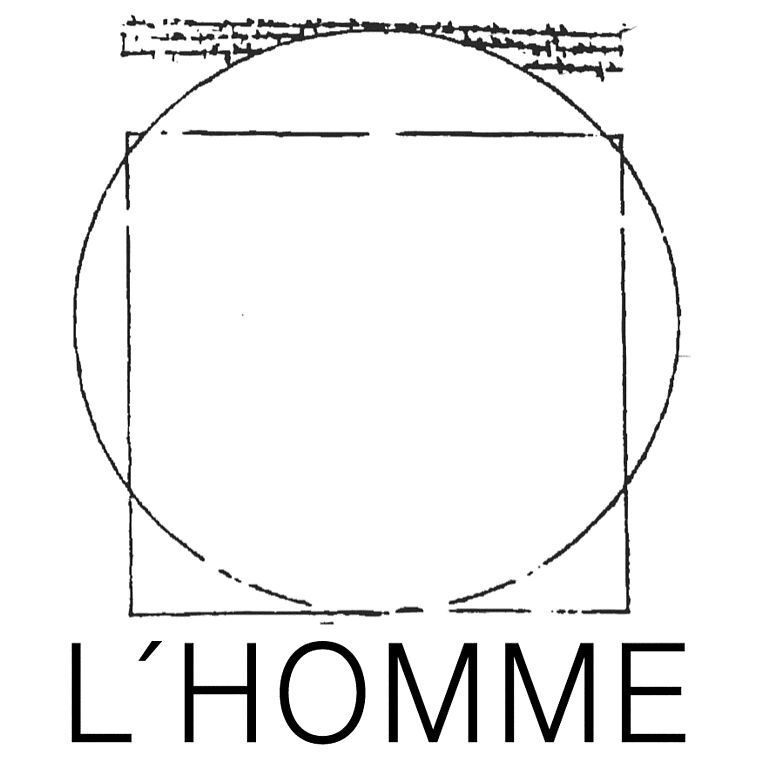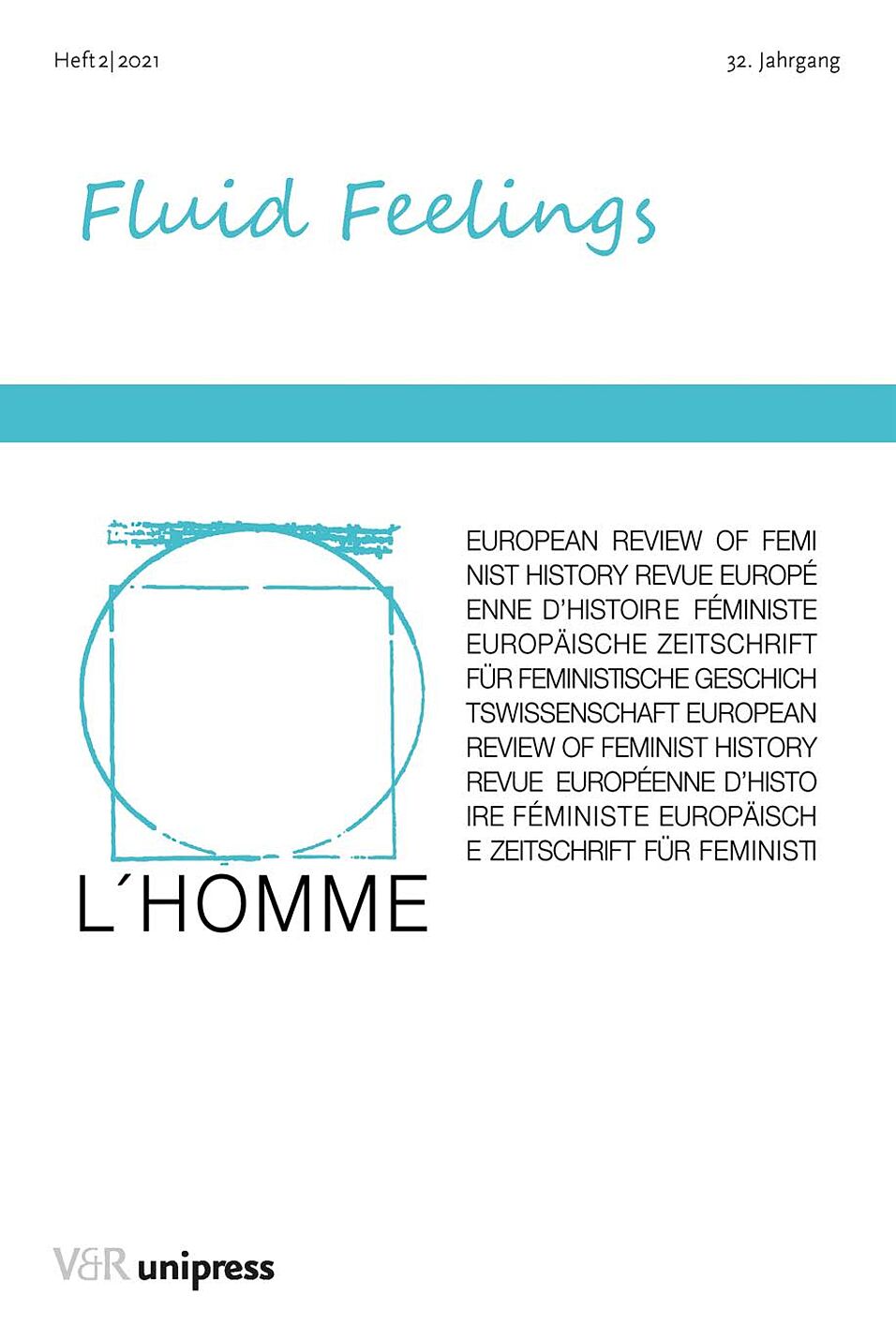Edited by Rukmini Barua, Alexandra Oberländer, Christa Hämmerle und Claudia Kraft
177 pages
ISBN: 978-3-8471-1325-6, ISSN: 1016-362X
Published October 2021
Order
Order print issue and digital version at V&R
For our English readers:
Please note that the main contributions are in English as well as the abstracts.
The contributions of the issue examine the interplay between gender and emotion and trace the dynamics of rigidity, instability and fluidity within it. Fluidity, in these essays comes in several forms and registers: as ambivalence, circulation and divergence. Our essays explore the interface between the social and the individual as well as the points of tension or cohesion that appear in ways of feeling (out of) gender. In bringing fluidity to the centre of our analysis, this special issue advances an understanding of gender, emotions and their interactions as phenomena in motion and in the process of becoming, rather than fixed. With a geographical scope encompassing Zambia, Turkey, Soviet Russia and India, and drawing on archival histories, individual biographies, ethnographies and explorations of popular culture, we elaborate how gender categories are strengthened, disturbed or made ambivalent by emotions.
PDFs
Abstract of main articles (pdf)
Table of content
Christa Hämmerle und Claudia Kraft
Editorial S. 9−11
Rukmini Barua und Alexandra Oberländer
Fluid Feelings: Introduction, S. 13−20
Articles
Stephanie Lämmert
“Let’s hope there are some good girls”. Sugar Relationships and Feminine Respectability in Post-Independence Zambia, S. 21−39
Margrit Pernau
Contested Emotions of Masculinity. The Court, the Street, and the Negotiation Table in an Indian Princely State in the 20th Century, S. 41−58
Rukmini Barua
Feminine Domesticity and Emotions of Gender. Work and Women in 20th and Early 21st Century India, S. 59−77
Alexandra Oberländer
To be a woman is hard work”. The Changing Landscape of Gendered Emotions in the Late Soviet Union, S. 79−96
Esra Sarioglu
Faces of Shame in Contemporary Turkey. Women Feeling the Hierarchies of Class and Gender at Work, S. 97−110
From the Archives
Andreas Brunner und Hannes Sulzenbacher
QWIEN – Wiens Archiv für queere Geschichte, S. 111−115
News & Commentary
Francisca Loetz
ThemToo? Überlegungen zur Erforschung sexualisierter Gewalt im frühneuzeitlichen Europa, S. 117–125
Gerlinde Hauer und Ingrid Moritz
(K)eine Krise wie jede andere. Corona und die Folgen für Frauen, S. 127–136
Libora Oates-Indruchová und Věra Sokolová
Eine feministische Brücke zwischen Ost und West. In Memoriam Hana Havelková, 18. September 1949–31. Oktober 2020, S. 137–139
Topic Specfic Reviews
Christina Lutter
Clare Monagle, Scholastic Effect. Gender, Maternity and the History of Emotions, S. 141–144
Kirsten Rüther
Lynn M. Thomas, Beneath the Surface. A Transnational History of Skin Lighteners, S. 144–147
Brigitte Semanek
Ute Frevert, Mächtige Gefühle. Von A wie Angst bis Z wie Zuneigung. Deutsche Geschichte seit 1900, S. 147–149
Martin Dinges
Bettina Hitzer, Krebs fühlen. Eine Emotionsgeschichte des 20. Jahrhunderts, S. 150–152
Samuel Huneke
Benno Gammerl, anders fühlen. Schwules und lesbisches Leben in der Bundesrepublik. Eine Emotionsgeschichte, S. 153–156
Further Reviews
Elisa Heinrich
Angelika Schaser, Sylvia Schraut u. Petra Steymans-Kurz (Hg.), Erinnern, vergessen, umdeuten? Europäische Frauenbewegungen im 19. und 20. Jahrhundert, S. 157–160
Irina Vana
Céline Angehrn, Arbeit am Beruf. Feminismus und Berufsberatung im 20. Jahrhundert, S. 160–164
Doris Ingrisch
Iwona Dadej, Beruf und Berufung transnational. Deutsche und polnische Akademikerinnen in der Zwischenkriegszeit, S. 164–167
Doreen Blake
Joanna Staśkiewiez, Katholische Frauenbewegung in Polen? Zum Wandel der Geschlechterverhältnisse in der katholischen Kirche in Polen nach 1989, S. 167–170
Abstracts, S. 171–173

